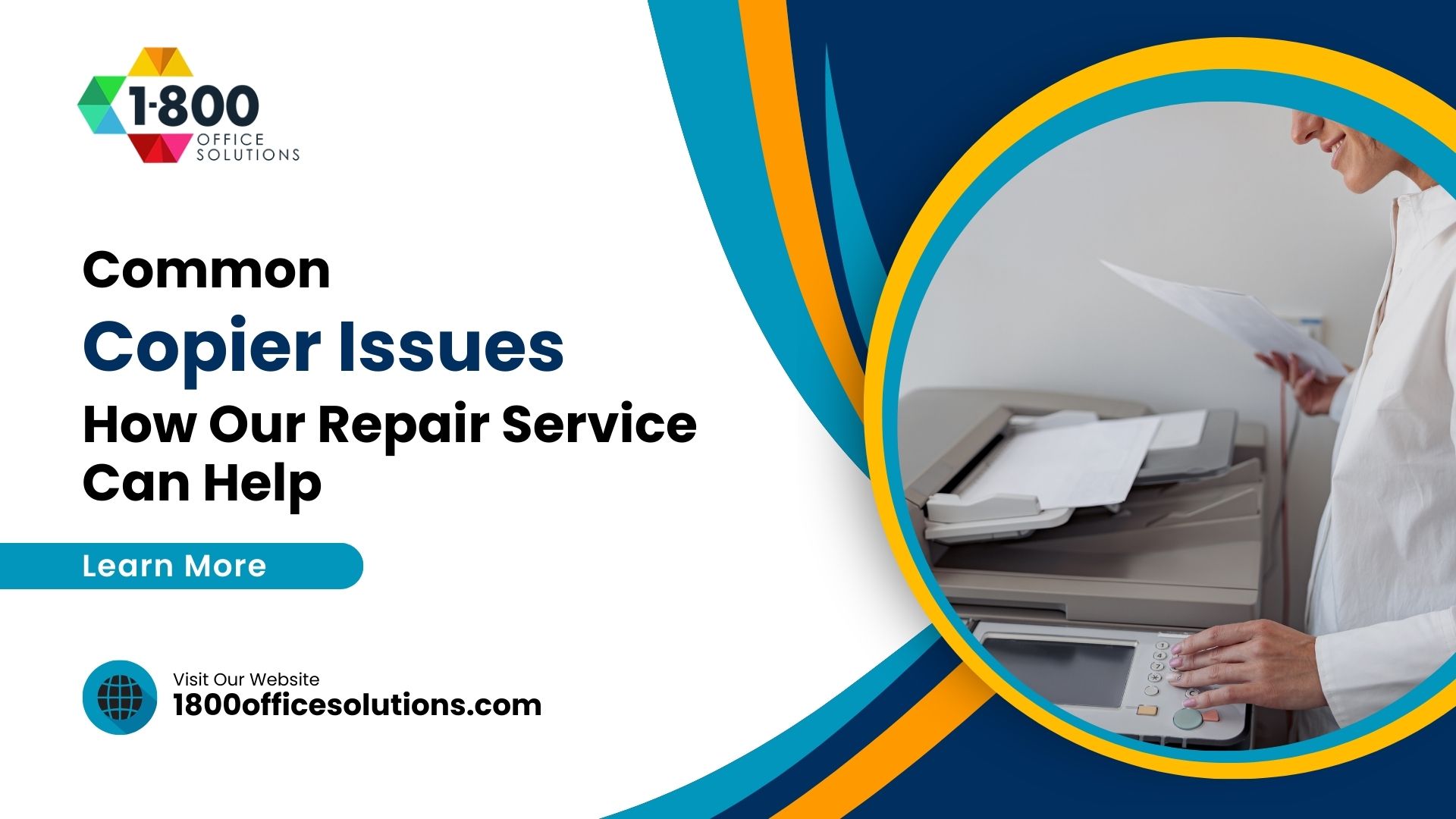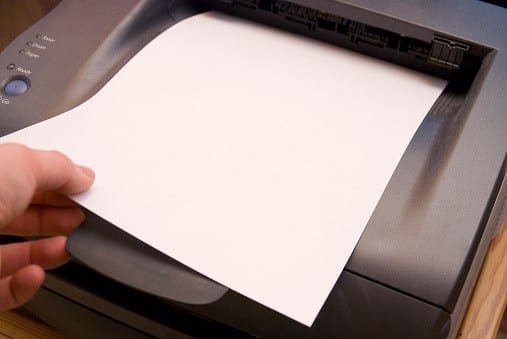Buying vs Leasing a Commercial Copier: The Pros and Cons That Might Surprise You
In the world of business, making the right decisions about office equipment can significantly impact your operations and bottom line. One of the most common dilemmas businesses face is whether to buy or lease a commercial copier or printer. This decision is not as straightforward as it may seem, as it involves considering various factors such as cost, maintenance, technology updates, and the specific needs of your business.
Whether you decide to buy or lease a commercial copier or printer, your decision should be based on a thorough understanding of the costs, benefits, and potential drawbacks of each option. In this blog post you’ll get a clear idea for buying vs leasing a commercial copier. By doing so, you can ensure that you make the best choice for your business’s unique needs and circumstances.
Importance of Buying vs Leasing a Commercial Copier
Choosing between leasing and buying a commercial copier or multifunction printer is a critical decision that can influence your business’s efficiency and productivity. The right choice can save you money, ensure you have access to the latest technology, and even affect your tax situation. On the other hand, a poor decision can lead to unnecessary costs and complications.
When you purchase a copier outright, you own the equipment and can use it for as long as it remains functional. However, the initial cost can be high, and you’ll be responsible for any maintenance or repairs. On the other hand, when you choose to lease a copier, you pay a monthly lease payment for the duration of the lease term.
This option often includes maintenance services and allows for easy upgrades to newer models. However, the total cost over the lease period may exceed the copier’s purchase price.
To make an informed decision, it’s essential to understand the pros and cons of both options and how they align with your business’s needs and financial situation. For instance, a startup with limited capital might prefer to lease to avoid the high upfront cost of buying. In contrast, an established business might opt to buy to take advantage of the tax benefits of depreciation.
In the HP® Tech Takes article, they delve into how leasing compares to buying, providing valuable insights that can guide your decision-making process. Furthermore, the 1800 Office Solutions discusses the benefits of leasing office equipment, which can be particularly useful for businesses considering this option.
The end of the lease also requires careful consideration. At this point, you may have the option to purchase the equipment, return it, or upgrade to a new model. Each choice has its implications, so it’s crucial to understand the terms of your lease agreement before signing.
Pros and Cons of Buying a Commercial Copier
When it comes to acquiring an office copier or printer, businesses often grapple with the decision to buy or lease. Both options have their advantages and disadvantages, and the best choice depends on various factors, including your business’s financial situation, equipment needs, and long-term plans.
Advantages of Buying a Commercial Copier
Ownership and Asset Value
When you buy a copier or printer, you gain an asset that adds value to your business. Ownership provides you with the freedom to use the copier as you wish without any restrictions that might come with a lease. You can also sell the copier if you no longer need it or if you want to upgrade to a newer model.
- Control: Owning a copier gives you complete control over its use. You can decide when to upgrade, repair, or replace it without having to consider the terms and conditions of a lease agreement.
- Asset Value: A copier is a tangible asset that adds to your business’s net worth. If you decide to sell your business, the copier can contribute to its market value.
- No Monthly Payments: Once you buy a copier, you don’t have to worry about monthly lease payments. This can simplify your budgeting and cash flow management.
Tax Benefits
Purchasing a copier can also provide tax benefits. Under Section 179 of the IRS tax code, businesses can deduct the full purchase price of qualifying equipment purchased or financed during the tax year. This means that if you buy an office copier, you can deduct the full cost from your gross income.
No Contractual Obligations
When you buy a copier, you’re not tied to any contractual obligations. You don’t have to worry about lease terms, early termination fees, or lease buyout provisions. You also avoid the potential complications of negotiating a new lease or dealing with leasing companies.
Disadvantages of Buying a Commercial Copier
Upfront Costs
One of the main drawbacks of buying a copier is the high upfront cost. Copiers and printers can be expensive, and not all businesses can afford to buy one outright. This is especially true for small businesses or startups with limited capital.
Maintenance and Repair Responsibilities
When you buy a copier, you’re responsible for its maintenance and repairs. While the copier may come with a warranty, it usually only lasts for a limited time. Once the warranty expires, any repair costs will come out of your pocket.
Technology Obsolescence
Copier technology is continually evolving, and new models with advanced features are regularly entering the market. When you buy a copier, you run the risk of it becoming obsolete within a few years. In contrast, leasing allows you to upgrade to a new copier at the end of your lease term.
Buying a commercial copier has its pros and cons. It’s a good option if you want full control over the equipment, can afford the upfront cost, and prefer not to have ongoing monthly payments. However, you need to be prepared for maintenance costs and the potential for technology obsolescence.
The best decision is one that aligns with your business’s needs, financial situation, and long-term goals. Therefore, it’s crucial to carefully consider all factors before deciding whether to buy or lease your next office copier.
Pros and Cons of Leasing a Commercial Copier
Choosing whether to lease or buy an office copier or printer is a significant decision that can impact your business’s operations and finances. While buying offers the benefits of ownership, leasing can provide flexibility, lower upfront costs, and access to the latest technology. However, leasing also has its drawbacks, including potentially higher long-term costs and lack of ownership.
Advantages of Leasing a Commercial Copier
Lower Initial Costs
One of the main advantages of leasing a copier or printer is the lower initial costs. Unlike buying, where you need to pay the full cost upfront, leasing involves making a monthly lease payment. This can make it easier for businesses, especially startups and small businesses, to acquire sophisticated technology.
- Affordability: Leasing allows businesses to acquire a copier or printer without a significant initial investment. This can be particularly beneficial for small businesses or startups with limited capital.
- Budgeting: With leasing, you know exactly how much you need to pay each month, which can simplify budgeting and cash flow management.
Inclusion of Maintenance and Repairs
Another advantage of leasing is that maintenance and repairs are typically included in the lease agreement. This means you don’t have to worry about unexpected repair costs or the hassle of maintaining the equipment.
- Convenience: When you lease an office copier or printer, the leasing company usually handles maintenance and repairs, saving you time and effort.
- Cost Savings: Including maintenance and repairs in the lease can result in significant cost savings, especially if the copier requires frequent maintenance or repairs.
Easy Upgrades
Leasing also allows for easy upgrades to newer models. This can be particularly beneficial given the rapid pace of technological advancement in copier technology.
- Access to Latest Technology: Leasing allows you to upgrade to a new copier at the end of your lease term, ensuring you always have access to the latest technology.
- Flexibility: If your business’s needs change, leasing allows you to upgrade or downgrade your equipment as needed.
Disadvantages of Leasing a Commercial Copier
Total Cost Over Time
While leasing has lower upfront costs, the total cost over time can be higher than buying. This is because you’re paying for the convenience of lower monthly payments, maintenance and repairs, and the ability to upgrade to new equipment.
- Higher Long-Term Costs: The total cost of leasing can exceed the purchase price of the copier, especially for long-term leases.
- Continuous Payments: Unlike buying, where you make a one-time payment, leasing involves continuous monthly payments for the duration of the lease.
Contractual Obligations
When you lease a copier, you’re tied to a contractual agreement. This can limit your flexibility and potentially result in additional costs if you need to terminate the lease early.
- Limited Flexibility: Lease agreements typically have a fixed term, and you may be charged a penalty if you need to terminate the lease early.
- Potential for Additional Costs: Some lease agreements may include clauses that result in additional costs, such as early termination fees or charges for exceeding a specified number of copies.
Lack of Ownership
Finally, when you lease a copier, you don’t own the equipment. This means you don’t have an asset that you can sell if you no longer need it, and you don’t benefit from any residual value at the end of the lease.
- No Asset Value: Leasing does not provide an asset that adds to your business’s value.
- No Residual Value: At the end of the lease, you typically return the equipment to the leasing company, so you don’t benefit from any residual value.
Leasing a commercial copier has its pros and cons. It’s a good option if you want to avoid high upfront costs, prefer predictable monthly payments, and want to have access to the latest technology. However, the total cost over time can be higher, and you don’t own the equipment.
In the HP® Tech Takes article, they discuss the pros and cons of leasing vs buying office equipment, which can provide further insights into the benefits and drawbacks of leasing.
Remember, the best decision is one that aligns with your business’s needs, financial situation, and long-term goals. Therefore, it’s crucial to carefully consider all factors before deciding whether to buy or lease your next office copier.
What People Also Ask
Is it cheaper to buy or lease a commercial copier?
The answer to this question depends on your business's specific circumstances. If you have the capital to cover the upfront cost and can handle the maintenance and repair costs, buying a copier might be cheaper in the long run. However, leasing a copier often requires a lower initial investment and includes maintenance and repair services, which can be more cost-effective for businesses with limited capital or those that prefer predictable monthly expenses.
What are the tax implications of buying vs leasing a commercial copier?
When you buy a copier, you can typically deduct the depreciation over the useful life of the equipment. However, the IRS has specific rules about how much you can deduct each year. On the other hand, when you lease a copier, the monthly lease payments are usually fully deductible as a business expense. It's always best to consult with a tax professional to understand the implications for your specific situation.
What are the maintenance considerations for buying vs leasing a commercial copier?
Maintenance is a crucial factor to consider when deciding whether to buy or lease a copier. When you buy, you're responsible for all maintenance and repair costs, which can be significant if the copier requires frequent service. However, you have the freedom to choose your service provider. When you lease, maintenance and repairs are typically included in the lease agreement, providing peace of mind and convenience. However, you may have less flexibility in choosing your service provider.
Conclusion
In conclusion, the decision to buy or lease a commercial copier depends on various factors, including your business’s financial situation, tax considerations, maintenance needs, and long-term plans. Buying offers the benefits of ownership, potential tax benefits, and no contractual obligations, but it also involves high upfront costs, maintenance responsibilities, and the risk of technology obsolescence.
On the other hand, leasing provides lower initial costs, includes maintenance and repairs, and allows for easy upgrades, but it can result in higher total costs over time, contractual obligations, and lack of ownership.
For businesses with sufficient capital and a desire for full control over their equipment, buying may be the best option. However, for businesses with limited capital or those that prefer predictable monthly expenses and access to the latest technology, leasing may be a more suitable choice.
Remember, the best decision is one that aligns with your business’s specific needs, financial situation, and long-term goals. Therefore, it’s crucial to carefully consider all factors and consult with financial and tax advisors before making your decision. Ultimately, whether you choose to buy or lease, the most important thing is that the copier meets your business’s needs and contributes to its efficiency and productivity.












